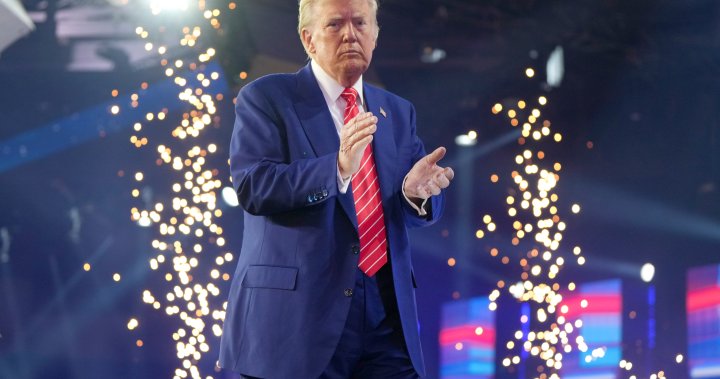Donald Trump’s recent social media post suggesting that Wayne Gretzky should run for prime minister of Canada has sparked a flurry of reactions and reignited discussions about the former US president’s unconventional views on Canada-US relations. Trump, in his characteristically informal style, claimed to have encouraged Gretzky, a Canadian hockey legend, to enter the political arena, predicting an easy victory without even campaigning. He further stated that it would be “fun to watch” a grassroots movement urging Gretzky to seek office. This proposition, while seemingly playful, is layered with Trump’s recurring rhetoric about Canada becoming a US state, a concept he often refers to as Canada being “governed” by the US, which the Canadian government dismisses as a joke.
This incident is not an isolated instance of Trump’s unorthodox pronouncements on Canada. He has repeatedly expressed a desire to see Canada become part of the United States, drawing parallels with his past expressions of interest in acquiring Greenland and the Panama Canal. This perspective, while largely dismissed by Canadian officials and the public, underscores Trump’s unconventional approach to foreign policy and his seemingly casual disregard for established international norms. His suggestion of Gretzky’s potential prime ministership can be interpreted as another manifestation of this worldview, where he envisages a scenario in which Canada is brought closer into the US fold, perhaps even through the leadership of a figure deeply admired and respected by Canadians.
Trump’s comments also included a Christmas greeting to Canadian Prime Minister Justin Trudeau, where he, again, referred to Trudeau as a “governor,” reiterating his vision of Canada as a US state. He claimed that Canadians would experience significant tax cuts and unparalleled military protection should Canada choose this path. This claim, while lacking in substantive detail, highlights Trump’s tendency to offer sweeping promises without engaging in nuanced policy discussions. His focus on economic benefits and military protection reflects his populist appeal and his emphasis on strength and security.
The Canadian response to Trump’s statements has been largely muted, with the focus remaining on more pressing issues such as potential trade disputes and the implications of a possible Trump presidency on the Canadian economy. While Trump’s remarks about annexing Canada are generally perceived as rhetorical rather than serious policy proposals, they nonetheless contribute to an underlying tension in the bilateral relationship. The Canadian government has consistently downplayed Trump’s comments, choosing to focus on practical matters of governance and diplomacy rather than engaging in public rebuttals of what are widely considered to be provocative pronouncements.
Wayne Gretzky’s history with Canadian politics adds another layer of complexity to this narrative. Gretzky has previously shown support for Conservative politicians, lending his endorsement to figures like former Ontario Progressive Conservative leader Patrick Brown. He also participated in a campaign event with former Prime Minister Stephen Harper in 2015, praising Harper’s leadership. However, Gretzky has also maintained a degree of political neutrality, noting his past interactions with Liberal politicians, including a luncheon hosted for former Prime Minister Pierre Trudeau. This suggests that while Gretzky is not averse to engaging with the political sphere, he has not openly aligned himself with any particular party, maintaining a respectful distance from partisan politics.
Trump’s suggestion that Gretzky run for prime minister, coupled with his recurring rhetoric about Canada becoming a US state, highlights the unconventional nature of his political discourse and his unique perspective on Canada-US relations. While his comments are often dismissed as outlandish and lacking in seriousness, they nevertheless contribute to the complex dynamic between the two countries. Canada’s response has been characterized by a pragmatic focus on substantive policy issues, choosing to avoid direct engagement with Trump’s more provocative statements. Gretzky’s past political engagements provide further context to the situation, showcasing his willingness to participate in the political sphere while maintaining a degree of neutrality. Ultimately, Trump’s comments serve as a reminder of the ongoing complexities and occasional tensions that characterize the relationship between Canada and the United States, particularly under unconventional leadership.

